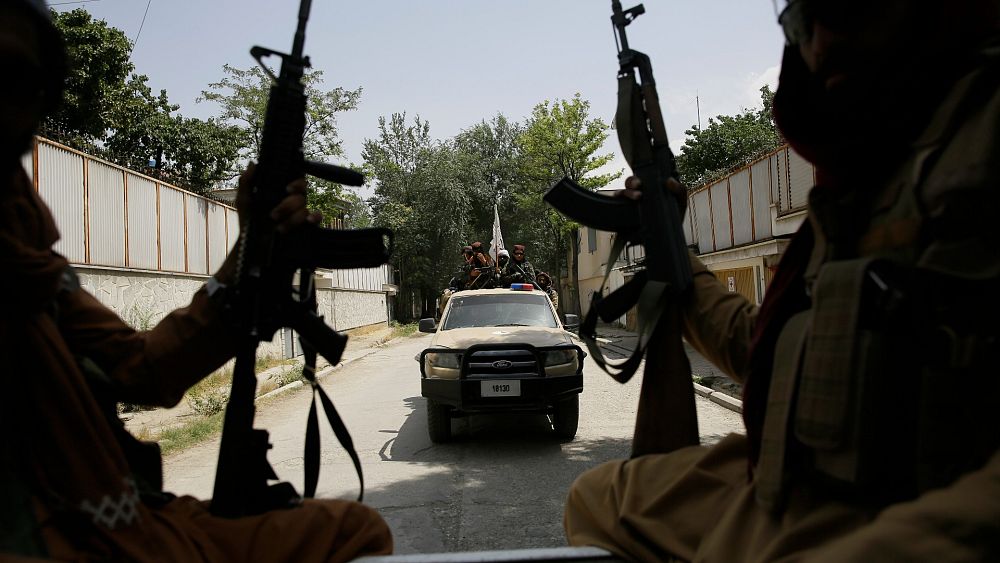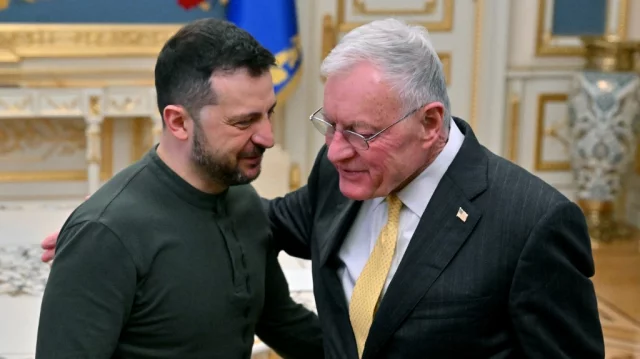
The Taliban said they want “good relations” with the rest of the world and will not allow Afghanistan to be a base for attacks.
Spokesman Zabihullah Mujahid said on Thursday: “We want good relations, we want a good economy, we want good trading, we want good diplomacy, but in return we want our values to be respected.
He also said the militant group will not tolerate any threat to its “principles” and “independence” and that if anyone “threatens our country’s independence or attacks us, without doubt we will react.”
The comments came as a confidential United Nations document warned that the Taliban is intensifying a search for people who worked with US and NATO forces and has established “priority lists” of individuals it wants to arrest.
“They are targeting the families of those who refuse to give themselves up, and prosecuting and punishing their families ‘according to Sharia law,'” Christian Nellemann, the executive director of the Norwegian Center for Global Analyses, which compiled the report for the UN, told AFP.
“We expect both individuals previously working with NATO/US forces and their allies, alongside with their family members to be exposed to torture and executions,” she added.
‘A common approach’
This is in stark contrast to statements the group made earlier this week, such as a “general amnesty” for people who worked with the government and international organisations.
NATO foreign ministers are scheduled to meet on Friday afternoon to discuss developments in Afghanistan, coordinate efforts to evacuate foreign nationals and Afghans who worked with foreign powers, and “plan for NATO’s path forward on engaging on Afghanistan,” the US State Department said in a statement following a call between Secretary Anthony Blinken and NATO chief Jens Stoltenberg.
Leaders from G7 countries will meet next week to “discuss a common approach”, the White House said.
Foreign ministers from the group of industrialised countries already convened on Thursday and said that they agreed that “the international community’s relationship with the Taliban will depend on their actions, not their words,” according to a readout from the US State Department.
Thousands of people have attempted to flee Afghanistan since the Taliban captured Kabul on Sunday, fearing that the group will reimpose a brutal rule on the country. The group has already violently suppressed several demonstrations including on Thursday when some Afghans carried long black, red and green banners in honor of the Afghan flag — banned by the Taliban and becoming a symbol of defiance — to mark the country’s Independence Day from British rule.
‘We cannot abandon them’
The Taliban have also set up checkpoints around Kabul airport, currently under US military control, and from where foreign evacuations are taking place. Foreign nationals and Afghans eligible for foreign evacuations have reported being subjected to violence.
Access is made more difficult by hundreds of Afghans, not eligible for foreign evacuations, crowding the area in the hope of securing a place on a flight out.
The UK has announced it will take in up to 20,000 Afghan refugees over the coming years, on top of those eligible for relocation to the UK because of their past work for the British embassy or army.
France and Germany have meanwhile called for the EU to plan to tackle to expected rise in migration from Afghanistan.
French President Emmanuel Macron stressed to US President Joe Biden “the moral responsibility that we collectively have towards Afghan men and women who need our protection and who share our values,” during a phone call on Thursday.
“We cannot abandon them,” he added.





